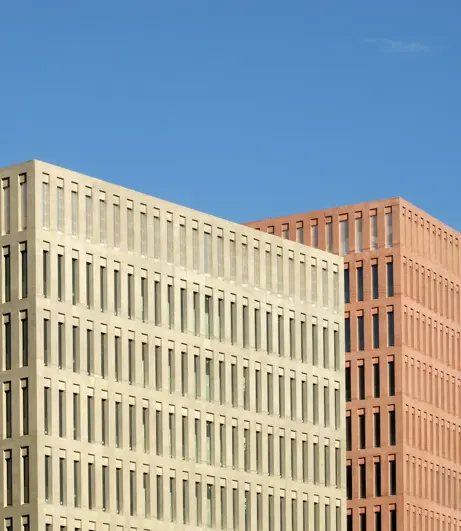This article is a summary of the Spanish criminal justice system for inexperienced people coming from abroad, who, for whatever the reasons, get tangled up in a criminal proceeding and seek out information about the subject.
ARREST
The starting point would be the arrest by the police (of course, it doesn’t have to start that way: you can either be summoned by the police officers just to bring a statement, or by the curt-house, as a person under investigation).
As an arrested, you are granted a number of rights, which must be used properly by you and your lawyer. The most significant are the following:
- Right to be assisted by an interpreter when you meet with your lawyer, and during your statement, in case you can’t speak Spanish; to be given written and spoken information about your rights in you own language, and a translation of the main decisions taken in court regarding your case, especially those referring to your freedom or imprisonment.
- Right to be informed about the facts you are attributed, and for which you are under investigation.
- right to make a phone call,
- Right to inform of your arrest and of the place you are being kept to someone you choose, and to inform of those circumstances to your country’s consulate.
- right to be assisted by a lawyer of your choice (in case you don’t chose one, a lawyer from the legal aid list will assist you. That doesn’t mean at all that his services will be provided for free: you are going to have to pay for them, unless you are granted legal aid benefits, in the following weeks after the arrest).
- Right to keep silent, and to make no statement, or to not answer any of the questions you are being asked during the statement. Right to not pled guilty
- Right to talk confidentiality with your lawyer, before and after your statement, and to have access (normally through your lawyer) to those elements in the file which are supposed to endorse the decision of your arrest.
- Right so that the arrest lasts only the indispensable time, never more than 72 hours, after which, you must be set free, or presented in front of the judge.
In case of arrest, the meeting with your lawyer will help you decide whether to make a statement, or to remain silent in front of the police, and will be the starting point to prepare all the necessary means to recover your freedom. If the police suspects you for a serious crime, and have reasons to think that you may not present voluntarily in the court house, the arrest may end with the police bringing you before the judge. And then, it is for the judge (after your statement) to decide whether to set you free or not. Any provisional imprisonment, after the arrest, must be asked to the judge, first, by the public prosecutor, in a trial in which your lawyer will face that demand proving, in most cases, the lack of risk of escape, or of destroying any useful evidence.
PRE-TRIAL AND TRIAL PROCEEDINGS
Criminal proceedings in Spain are led, in their first stage, by the investigating judge (Juez de Instrucción). If you are suspected in the file object of investigation, or else if you are a victim of the crime, you can participate, trough your lawyer, in all the criminal pre-trial proceedings. The goal, if you are suspected, is to avoid facing a trial, trough dismissal (“sobreseimiento”) after the investigation.
But if the trial happens, in the end, it will take place in front of another judge: the single-person criminal court (if the crime you are being charged is punished with less than 5 years’ imprisonment) or the Criminal Court (if the crime is punished with more than 5 years’ imprisonment), and, for certain crimes, such as homicide, threats, bribery, influence trafficking, embezzlement of public funds, or fraud made by civil servants, the trial is made by jury (which is formed of nine average people who are called for jury duty). In all cases, the sentences are open to appeal. Of course, as in all democratic societies, You are protected by the presumption of innocence until proven guilty beyond a reasonable doubt.
URGENT PROCEEDINGS
There’s a special proceeding for several crimes punished with less than 5 years’ imprisonment (such as larceny, theft, burglary, drunk driving or minor drug dealing). In those cases, if the investigating judge (the judge on duty) receives the arrested, with the police report, and makes all necessary pre-trial proceedings the very same day (proceedings such as a medical examiner’s report in case of injuries, or an expert’s valuation in case of stolen objects) then he can ask the prosecutor to decide whether he accuses or not. And If the prosecutor decides to accuse, then the judge opens the trial that day. These are called “Urgent Proceedings” (“Diligencias Urgentes”).
All criminal proceedings in Spain allow the defendant to make a declaration of conformity with the prosecutor’s accusation (naturally, after the necessary negotiation carried by the defendant’s lawyer) which ends in a conviction according to that conformity. But in these Urgent Proceedings, the conviction imposed as a result of the conformity, reduces in a third the punishment accepted by the defendant.
MINOR OFFENCES PROCEEDINGS
And finally, It’s also important to know that, for minor offences (“delitos leves”) there’s also a special proceeding, which requires no pre-trial procedures, and whose trial takes place in front of the investigating judge of the place. For that particular proceeding, lawyer assistance is not obligatory (except in some particular cases, where the penalty can be slightly higher). You won’t be assigned a legal aid lawyer, so, naturally, it’s always wise to choose a private one to defend and protect your interests.
If you need further information, don’t bother to contact us here. We’ll see if we can help you.
Màrius Roch i Izard
Criminal lawyer in Barcelona
